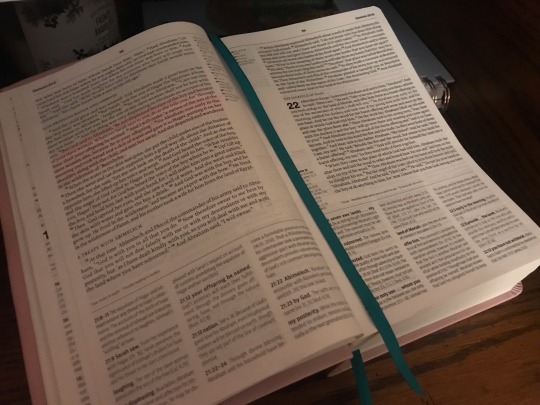#reformed theology
Text
Our confidence in Christ does not make us lazy, negligent or careless, but, on the contrary, it awakens us, urges us on and makes us active in living righteous lives and doing good. There is no self-confidence to compare with this.
Ulrich Zwingli
#God#Jesus#Christ#christian blog#christian#christianity#faith#christian faith#theology#reformed theology#quote#Ulrich Zwingli
54 notes
·
View notes
Text
kickstarter
Hey so a friend of mine is having his game kickstarted! If you like supporting indie developers, games with beautiful art, and Christian values, please show your support by either backing the game, or reblogging!
124 notes
·
View notes
Text






Reformation Day meme dump for all your Reformation Day meme needs!
#reformation#reformation day#martin luther#christianity#christian#catholicism#catholic#meme#reformed theology
44 notes
·
View notes
Text



Bible study
#bible#bible study#christian#christianity#religion#faith#jesus christ#bibliophile#theology#reformed theology#bible reading#john macarthur#rc sproul#reformation#pink bible#pink#study#traditional femininity#trad fem#notes#note taking#reformation study bible
19 notes
·
View notes
Text
“And not only so, but also when Rebekah had conceived children by one man, our forefather Isaac, though they were not yet born and had done nothing either good or bad—in order that God’s purpose of election might continue, not because of works but because of him who calls— she was told, “The older will serve the younger.”
As it is written, “Jacob I loved, but Esau I hated.” What shall we say then? Is there injustice on God’s part? By no means! For he says to Moses, “I will have mercy on whom I have mercy, and I will have compassion on whom I have compassion.” So then it depends not on human will or exertion, but on God, who has mercy.”
Romans 9:10-16 ESV
7 notes
·
View notes
Text
Lord, I Believe! Help My Unbelief!
In Mark 9:14-29, the weakness and limit of men is demonstrated, especially with regard to faith, and so is the answer to men's weakness:
Luke 17:5 (KJV), "And the apostles said unto the Lord, Increase our faith."
Mark 9:24, "And straightway the father of the child cried out, and said with tears, Lord, I believe; help thou mine unbelief."
“A weak faith may also be true faith, when it is otherwise of the right kind. A fire is not at once a bright blazing flame, but it often starts with a single spark.” - Otto Thelemann, An Aid to the Heidelberg Catechism, 79
Hebrews 12:2a, "Looking unto Jesus the author and finisher of our faith."
Notice what the Epistle to the Hebrews tells us, that Christ doesn't just finish or complete it but is the one who gives us the faith to begin with. This is why the Westminster Shorter Catechism puts it this way:
Question 86: What is faith in Jesus Christ?
Answer: Faith in Jesus Christ is a saving grace, whereby we receive and rest upon him alone for salvation, as he is offered to us in the gospel.
It is a saving grace, meaning it wholly begins with the gracious act of God, and doesn't begin with man or his acceptance. It is strengthened by Christ who works it in us by His Spirit completing that work at our death.
Praise God, our salvation relies not upon any faith made by the strength of men, but on a faithful Savior who is powerful, mighty, and gracious to save sinners.

4 notes
·
View notes
Text
Submission does not mean a dimished value. I am not less than my husband because he has been placed into a position of leadership. Sinful pride breeds discontent in our divinely created roles.
God's plan is perfect. We must pray and examine ourselves to find satisfaction in where he has placed us.
12 notes
·
View notes
Note
get loved, nerd
LOVED BY CHRIST BABYYYYYYY
#christian#christian blog#christian faith#christianity#faith in jesus#holy spirit#reformed theology#theology
17 notes
·
View notes
Note
What's your favourite thing about Reformed theology and why?
Asking as someone who doesn't like Reformed theology much who wants to know what its followers like about it.
Thank you for this question. I'm going to do my best to answer it while saying up front that I'm not discussing doctrine. I'm not a good debater. I'm taking your kind question as a subjective question, not one that wishes a doctrinal answer or a compare and contrast with other denominations answer.
For me personally, two things that I love about Reformed theology are this:
A High View of God. Reformed Baptists hold and teach a high view of God, His goodness, transcendence, simplicity, and attributes. The higher my view of God, the greater and more wonderful my salvation is. I also deeply appreciate the focus being on God and not on me and my feelings. This equips me to view myself correctly and not be overwhelmed by my feelings which are many and a bit all over the place.
I love the truth of Christian liberty expounded in our Confession: (I also love our confessionalism because it provides clarity and safety.) The liberty which Christ has purchased for believers under the gospel, consists in their freedom from the guilt of sin, the condemning wrath of God, the severity and curse of the law, and in their being delivered from this present evil world, bondage to Satan, and dominion of sin, from the evil of afflictions, the fear and sting of death, the victory of the grave, and everlasting damnation: as also in their free access to God, and their yielding obedience unto Him, not out of slavish fear, but a child-like love and willing mind. All which were common also to believers under the law for the substance of them; but under the New Testament the liberty of Christians is further enlarged, in their freedom from the yoke of a ceremonial law, to which the Jewish church was subjected, and in greater boldness of access to the throne of grace, and in fuller communications of the free Spirit of God, than believers under the law did ordinarily partake of. (2LBCF 21.1)
I think that might be one of the most beautiful lists ever penned by man.
I'm going to tag @walkingthroughthisworld who can check me if I put anything wrong or unclearly.
These are two of my favorite things about Reformed Theology. I love its boldness and clarity, but mostly I love its high view of the Lord and I love the liberty in Christ that it brings.
#ask#ask answered#theology#reformed baptist#reformed theology#thoughts of a layperson#personal#2lbcf
6 notes
·
View notes
Text
November 10, 2023
𝗠𝙮 𝙙𝙚𝙖𝙧𝙡𝙮 𝙗𝙚𝙡𝙤𝙫𝙚𝙙 𝙛𝙧𝙞𝙚𝙣𝙙𝙨 𝙞𝙣 𝙩𝙝𝙚 𝙇𝙤𝙧𝙙,
Every new day's display of mercy serves to lighten the burdens of my heart, such is the boundless love of Christ! It is a love so infinitely great that 𝗻𝗲𝗶𝘁𝗵𝗲𝗿 𝘁𝗵𝗲 𝗹𝗼𝗳𝘁𝗶𝗲𝘀𝘁 𝗵𝗲𝗶𝗴𝗵𝘁𝘀 𝗻𝗼𝗿 𝘁𝗵𝗲 𝗱𝗲𝗲𝗽𝗲𝘀𝘁 𝗱𝗲𝗽𝘁𝗵𝘀 𝗰𝗮𝗻 𝗲𝘃𝗲𝗿 𝘀𝗲𝗽𝗮𝗿𝗮𝘁𝗲 𝘂𝘀 𝗳𝗿𝗼𝗺 𝗶𝘁. (𝗥𝗼𝗺𝗮𝗻𝘀 𝟴:𝟯𝟵)
In contemplating the glorious gospel of Christ, I find it somewhat odd that my humble writings would ever catch the eye of readers. Each day, as I take pen to journal, I would usually hide away and engage in a profound conversation with Christ, my most Beloved Shepherd. It is not so much a dread of my compositions being seen or being read, but my penned expressions are usually poorly written.
But now it is my deepest desire to display this musings of grace in my life. I ponder at the thought that I should write for my Savior, I have but little of knowledge in words and sheered away from confidence easily. Perhaps, I am the same with Moses when he expressed his feelings of inadequacy by uttering the words, “𝗢𝗵, 𝗺𝘆 𝗟𝗼𝗿𝗱, 𝗜 𝗮𝗺 𝗻𝗼𝘁 𝗲𝗹𝗼𝗾𝘂𝗲𝗻𝘁, 𝗲𝗶𝘁𝗵𝗲𝗿 𝗶𝗻 𝘁𝗵𝗲 𝗽𝗮𝘀𝘁 𝗼𝗿 𝘀𝗶𝗻𝗰𝗲 𝘆𝗼𝘂 𝗵𝗮𝘃𝗲 𝘀𝗽𝗼𝗸𝗲𝗻 𝘁𝗼 𝘆𝗼𝘂𝗿 𝘀𝗲𝗿𝘃𝗮𝗻𝘁, 𝗯𝘂𝘁 𝗜 𝗮𝗺 𝘀𝗹𝗼𝘄 𝗼𝗳 𝘀𝗽𝗲𝗲𝗰𝗵 𝗮𝗻𝗱 𝗼𝗳 𝘁𝗼𝗻𝗴𝘂𝗲.” (𝗘𝘅𝗼𝗱����𝘀 𝟰:𝟭𝟬)
Nonetheless, I am continually compelled to pour out my heart through this writing, echoing the sentiment Paul Washer shared when he penned his recent book, "𝗬𝗼𝘂 𝗰𝗮𝗻𝗻𝗼𝘁 𝘀𝗲𝗲 𝘁𝗵𝗲 𝗯𝗲𝗮𝘂𝘁𝘆 𝗼𝗳 𝗖𝗵𝗿𝗶𝘀𝘁 𝗮𝗻𝗱 𝗻𝗼𝘁 𝘁𝗲𝗹𝗹 𝗲𝘃𝗲𝗿𝘆𝗯𝗼𝗱𝘆." But who am I to write mere earthly words to describe my Sovereign Lord Jesus Christ, who embodies wisdom and is the ultimate source of knowledge? Such is the magnificence of my Beloved! Oh, that I could magnify Your name, O Lord! “𝗬𝗼𝘂 𝗮𝗿𝗲 𝗴𝗿𝗲𝗮𝘁, 𝗦𝗼𝘃𝗲𝗿𝗲𝗶𝗴𝗻 𝗟𝗢𝗥𝗗; 𝗳𝗼𝗿 𝘁𝗵𝗲𝗿𝗲 𝗶𝘀 𝗻𝗼 𝗚𝗼𝗱 𝗹𝗶𝗸𝗲 𝗬𝗼𝘂, 𝗮𝗻𝗱 𝘁𝗵𝗲𝗿𝗲 𝗶𝘀 𝗻𝗼 𝗚𝗼𝗱 𝗯𝗲𝘀𝗶𝗱𝗲𝘀 𝗬𝗼𝘂, 𝗮𝗰𝗰𝗼𝗿𝗱𝗶𝗻𝗴 𝘁𝗼 𝗮𝗹𝗹 𝘁𝗵𝗮𝘁 𝗜 𝗵𝗮𝘃𝗲 𝗵𝗲𝗮𝗿𝗱 𝘄𝗶𝘁𝗵 𝗺𝘆 𝗼𝘄𝗻 𝗲𝗮𝗿𝘀.” (𝟮 𝗦𝗮𝗺𝘂𝗲𝗹 𝟳:𝟮𝟮)
It is humiliating if I should write for other things, for everything next to Christ is unworthy of a minute’s writing. For all else pales in comparison to Him and is hardly worthy of a single moment's attention! They are all but contending of power, devoid of true worth—nothing more than empty vanity.
So I’ll try to write this composition as a testifier to the truth of Jesus in my life. I cannot deny that often times my love grows cold and my heart faints in believing that He will come again and He will bring me with Him in eternal life—that there is always this embedding vile heart that should believe He might forsake me, that I would flee away from my Lord when there will be seasons of great change, doubt, and weariness. But the promises of God, fellow believer, THAT I cannot deny—the promises of not just paradise, not heavenly riches but the appearance of my dearly Beloved face to face He will say to me, “𝗔𝗻𝗱 𝗜 𝘄𝗶𝗹𝗹 𝗯𝗲𝘁𝗿𝗼𝘁𝗵 𝘆𝗼𝘂 𝘁𝗼 𝗠𝗲 𝗳𝗼𝗿𝗲𝘃𝗲𝗿. 𝗜 𝘄𝗶𝗹𝗹 𝗯𝗲𝘁𝗿𝗼𝘁𝗵 𝘆𝗼𝘂 𝘁𝗼 𝗠𝗲 𝗶𝗻 𝗿𝗶𝗴𝗵𝘁𝗲𝗼𝘂𝘀𝗻𝗲𝘀𝘀 𝗮𝗻𝗱 𝗶𝗻 𝗷𝘂𝘀𝘁𝗶𝗰𝗲, 𝗶𝗻 𝘀𝘁𝗲𝗮𝗱𝗳𝗮𝘀𝘁 𝗹𝗼𝘃𝗲 𝗮𝗻𝗱 𝗶𝗻 𝗺𝗲𝗿𝗰𝘆. 𝗜 𝘄𝗶𝗹𝗹 𝗯𝗲𝘁𝗿𝗼𝘁𝗵 𝘆𝗼𝘂 𝘁𝗼 𝗠𝗲 𝗶𝗻 𝗳𝗮𝗶𝘁𝗵𝗳𝘂𝗹𝗻𝗲𝘀𝘀.” (𝗛𝗼𝘀𝗲𝗮 𝟮:𝟭𝟵-𝟮𝟬) How precious is He that our betrothal with Him is forever!
I have trodden a path of waywardness throughout my existence, yet one thing rests resolutely upon my conscience—that 𝗖𝗵𝗿𝗶𝘀𝘁 𝗹𝗼𝘃𝗲𝗱 𝗺𝗲 𝗮𝗻𝗱 𝗴𝗮𝘃𝗲 𝗛𝗶𝗺𝘀𝗲𝗹𝗳 𝗳𝗼𝗿 𝗺𝗲 (𝗚𝗮𝗹𝗮𝘁𝗶𝗮𝗻𝘀 𝟮:𝟮𝟬), His life and death has been my salvation, His love has been the anchor of my life. It is a wonderful love that has not left me, a love that has cleansed me and sanctified me. This love, and this love alone, possesses the remarkable ability to humble me to my knees when I transgress. Regrettably, I acknowledge that, in the future, I may commit sins more grievous than I dare to contemplate, even against the One who holds me in His beloved embrace. However, I find solace in the fact that I have received love, forgiveness, compassion, mercy, redemption, and a complete transformation through the sacrificial death of Christ Jesus my dearest Lord. Therefore, when I do fall short and sin, like David I will cry with beating-breasts guarded with the truth that God will not forsake me in my iniquity. Instead, He will remind me of His unwavering love for me, He will remind me that it was Him who has loved me first, The Lord Himself will carry me as I enter His throne of grace, and He will bestow upon my soul a blessed assurance that the strength to abide in Him—always and forever resides within His Spirit.
O weary souls, I encourage you to seek the boundless love of Christ, even though 𝗶𝘁 𝗶𝘀 𝘀𝗼 𝘃𝗮𝘀𝘁 𝗮𝗻𝗱 𝗽𝗿𝗼𝗳𝗼𝘂𝗻𝗱 𝘁𝗵𝗮𝘁 𝘄𝗲 𝗰𝗮𝗻 𝗻𝗲𝘃𝗲𝗿 𝗳𝘂𝗹𝗹𝘆 𝗰𝗼𝗺𝗽𝗿𝗲𝗵𝗲𝗻𝗱 𝗶𝘁 (𝗘𝗽𝗵𝗲𝘀𝗶𝗮𝗻𝘀 𝟯:𝟭𝟵). His love overflows like an unending stream of water, with nothing to hinder its course. Therefore, I urge you to 𝘀𝗲𝗲𝗸 𝘁𝗵𝗲 𝗢𝗻𝗲 𝘄𝗵𝗼𝗺 𝘆𝗼𝘂𝗿 𝘀𝗼𝘂𝗹 𝗹𝗼𝘃𝗲𝘀 (𝗦𝗼𝗻𝗴 𝗼𝗳 𝗦𝗼𝗹𝗼𝗺𝗼𝗻 𝟯:𝟮), to love Him, and to be loved by Him greatly, 𝗳𝗼𝗿 𝘁𝗵𝗲 𝗟𝗼𝗿𝗱 𝘄𝗶𝗹𝗹 𝗻𝗼𝘁 𝗰𝗮𝘀𝘁 𝗼𝗳𝗳 𝗳𝗼𝗿𝗲𝘃𝗲𝗿. (𝗟𝗮𝗺𝗲𝗻𝘁𝗮𝘁𝗶𝗼𝗻𝘀 𝟯:𝟯𝟭)
The love of Christ to you,
𝘾𝙝𝙚𝙣𝙘𝙝𝙚𝙣
#christian blog#reformed#christianity#writers and readers#jesus christ#christian#reformed theology#letters
5 notes
·
View notes
Text
If your Christian conversion did not reverse the direction of your life; if it did not transform it then you are not converted at all. You are simply a victim of the “accept Jesus” heresy.
A. W. Tozer
#God#Jesus#Christ#christian blog#christian#christianity#faith#christian faith#theology#reformed theology#quote#AW Tozer
65 notes
·
View notes
Text
"Glory follows afflictions, not as the day follows the night but as the spring follows the winter; for the winter prepares the earth for the spring, so do afflictions sanctified prepare the soul for glory."
-Richard Sibbes
61 notes
·
View notes
Text
"God's wrath is part of God's glory. Because if you look at the cross and don't see the wrath of God against sin, you are not seeing the love of God either." - James White
49 notes
·
View notes
Note
“Understand you contribute nothing to your salvation but the sin that made it necessary.” Don’t understand this. Don’t you contribute by accepting Jesus (and all that entails, just simplifying a bit here)? Are you referencing you can’t “good works” your way into heaven? Or do you subscribe to predestination (as in are you a Calvinist)? Sorry I’m just wondering what you meant
I mean… my bio does say “reformed Christian”….
And since you asked— let’s go!
“Blessed be the God and Father of our Lord Jesus Christ, who has blessed us in Christ with every spiritual blessing in the heavenly places, even as he chose us in him before the foundation of the world, that we should be holy and blameless before him. In love he predestined us for adoption to himself as sons through Jesus Christ, according to the purpose of his will, to the praise of his glorious grace, with which he has blessed us in the Beloved.”
Ephesians 1:3-6 ESV (emphasis added)
I would hope every Christian subscribes to predestination. It’s in the Bible.
“In him we have obtained an inheritance, having been predestined according to the purpose of him who works all things according to the counsel of his will, so that we who were the first to hope in Christ might be to the praise of his glory.”
Ephesians 1:11-12 ESV (emphasis added)
And we know that for those who love God all things work together for good, for those who are called according to his purpose. For those whom he foreknew he also predestined to be conformed to the image of his Son, in order that he might be the firstborn among many brothers. And those whom he predestined he also called, and those whom he called he also justified, and those whom he justified he also glorified.
Romans 8:28-30 (emphasis added)
That being said:
You contribute nothing to your salvation but the sin that made it necessary.
“None is righteous, no, not one;
no one understands;
no one seeks for God.
All have turned aside; together they have become worthless;
no one does good,
not even one.”
Romans 3:10-12 (emphasis added)
No one can come to me unless the Father who sent me draws* him. And I will raise him up on the last day.
John 6:44 ESV (*the literal Greek translation is the word drags)
You also did not choose to follow Christ out of your own initiation. Jesus says so:
You did not choose me, but I chose you and appointed you that you should go and bear fruit and that your fruit should abide, so that whatever you ask the Father in my name, he may give it to you.
John 15:16 ESV (emphasis added)
The Bible tells us that we are Dead in in. Dead.
Dead people can't choose anything. Dead people can't contribute anything. Dead people are dead.
And you were dead in the trespasses and sins in which you once walked, following the course of this world, following the prince of the power of the air, the spirit that is now at work in the sons of disobedience— among whom we all once lived in the passions of our flesh, carrying out the desires of the body and the mind, and were by nature children of wrath, like the rest of mankind. But God, being rich in mercy, because of the great love with which he loved us, even when we were dead in our trespasses, made us alive together with Christ—by grace you have been saved— and raised us up with him and seated us with him in the heavenly places in Christ Jesus, so that in the coming ages he might show the immeasurable riches of his grace in kindness toward us in Christ Jesus. For by grace you have been saved through faith. And this is not your own doing; it is the gift of God, not a result of works, so that no one may boast. For we are his workmanship, created in Christ Jesus for good works, which God prepared beforehand, that we should walk in them.
Ephesians 2:1-10 ESV (emphasis added)
No, you didn't contribute by accepting Jesus. That's a boast. I accepted Jesus, now I'm saved. NO.
You were dead.
God saved you.
#buddy you're either being passive aggressive#or you're really new here#either way#hi#I'm Fae and I'm a born and raised Reformed Theology Nerd#anon#reformed theology#Calvinism
37 notes
·
View notes
Text
“It is fit that God should be glorified whatever becomes of you. You are dear to God, but God’s name is dearer to Him than you are…You have had a great loss and affliction upon you, but God has had glory. God has glorified Himself.”
Jeremiah Burroughs, Gospel Worship, p. 10.
https://heritagebooks.org/products/gospel-worship-burroughs.html
2 notes
·
View notes
Text
The theology of C.S. Lewis
C.S. Lewis is someone who is often quoted on social media. No matter how solid a brother and sister in Christ might be, it seems Lewis always gets quoted by them. His books are sold in many respectful Christian conferences. In many seminaries, some of his books are mandatory to read. Is he, therefore, someone we should read without hesitation?
Martyn Lloyd-Jones sounds off the alarm
One of Lewis' friends, pastor Martyn Lloyd-Jones, warned others that “Lewis was essentially a philosopher” and not a theologian. Why did Lloyd-Jones say that? Because, as Martyn Lloyd-Jones noted: “(1) Lewis taught and believed that one could reason oneself into Christianity; and (2) Lewis was an opponent of the substitutionary and penal theory of the Atonement.” The former is a cause to concern, seeing that it goes directly against Romans 8:7, but the latter is to completely deny the Christian faith.
Inclusivism
Lewis was an inclusivist. He believed that faith in Christ is not necessary for salvation, and all worship, no matter the religion, eventually leads to the same destination: the Christian God — even if the people in other religions don’t know/realize it. He wrote:
There are people in other religions who are being led by God’s secret influence to concentrate on those parts of their religion which are in agreement with Christianity, and who thus belong to Christ without knowing it. For example a Buddhist of good will may be led to concentrate more and more on the Buddhist teaching about mercy and to leave in the background (though he might still say he believed) the Buddhist teaching on certain points.”
He came to this conclusion when he considered all the people of the world who had died before the incarnation of Christ. He wrote: “Many of the good Pagans long before Christ’s birth may have been in this position [that is, saved].”
Prayers to false gods
Since God is merciful, Lewis believed that God would accept worship from everyone, and that meant He’d also listen to all prayers. Lewis wrote: “I think that every prayer which is sincerely made even to a false god or to a very imperfectly conceived true God... is accepted by the true God and that Christ saved many who do not think they know Him.”
While visiting Greece with his wife, he was very tempted to pray to a false god. After all, for Lewis, someone can be heard by the Christian God if they pray to any false god. He wrote: “I had some ado to prevent Joy (and myself) from relapsing into Paganism in Attica! At Daphni it was hard not to pray to Apollo the Healer. But somehow one didn't feel it would have been very wrong — would have only been addressing Christ sub specie Apollinis.”
Genesis, Jonah, and Esther
For Lewis, the Old Testament wasn’t a reliable source of history because it was either pagan stories or purely poetic. As a matter of fact, for Lewis, the Bible didn't start to be real history until the New Testament. Lewis wrote:
The earliest stratum of the Old Testament contains many truths in a form which I take to be legendary, or even mythical—hanging in the clouds, but gradually the truth condenses, becomes more and more historical. From things like Noah’s Ark or the sun standing still upon Ajalon, you come down to the court memoirs of King David. Finally you reach the New Testament and history reigns supreme, and the Truth is incarnate.
He also could not believe in the book of Jonah, or Esther, as being real stories. He wrote:
The point is that the whole Book of Jonah has to me the air of being a moral romance, a quite different kind of thing from, say, the account of King David or the New Testament narratives, not pegged, like them, into any historical situation. In what sense does the Bible 'present' the Jonah story 'as historical'? Of course it doesn’t say, 'This is fiction,' but then neither does our Lord say that the Unjust Judge, Good Samaritan, or Prodigal Son are fiction (I would put Esther in the same category as Jonah for the same reason).
Evolution
Because his views of Genesis were flawed, he also believed in theistic evolution. He wrote:
For long centuries God perfected the animal form which was to become the vehicle of humanity and the image of Himself… The creature may have existed for ages in this state before it became man: it may even have been clever enough to make things which a modern archaeologist would accept as proof of its humanity. But it was only an animal because all its physical and psychical processes were directed to purely material and natural ends. Then, in the fullness of time, God caused to descend upon this organism, both on its psychology and physiology, a new kind of consciousness which could say ‘I’ and ‘me,’ which could look upon itself as an object, which knew God, which could make judgments of truth, beauty, and goodness, and which was so far above time that it could perceive time flowing past.
Purgatory and praying for the dead
Lewis held to certain Catholic beliefs. For instance, he believed in purgatory and praying for the dead. He wrote:
Of course I pray for the dead. The action is so spontaneous, so all but inevitable, that only the most compulsive theological case against it would deter me. And I hardly know how the rest of my prayers would survive if those for the dead were forbidden. At our age, the majority of those we love best are dead. What sort of intercourse with God could I have if what I love best were unmentionable to him? I believe in Purgatory. I assume that the process of purification will normally involve suffering. Partly from tradition; partly because most real good that has been done me in this life has involved it.
No literal, or eternal, hell
For Lewis, hell wasn’t a place where there “shall be weeping and gnashing of teeth,” but rather he believed those in hell would “enjoy forever the horrible freedom they have demanded, and are therefore self-enslaved."
Lewis couldn’t tell how long someone would be stuck in this made-up hell. He wrote: “[The Bible] usually emphasizes the idea not of duration but of finality... but whether this eternal fixity implied endless duration–or duration at all–we cannot say.”
Lewis also talked about a possible version of hell where you are stuck in a solitary existence — a self-imposed mental prison while in purgatory. He wrote: “Whether [hell] being left to a purely mental existence, left with nothing at all but one's own envy, prurience, resentment, loneliness & self conceit, or whether there is still some sort of environment, something you could call a world or a reality, I never pretend to know.”
The existence of the devil is unimportant
For Lewis, whether you believe in the devil or not, is unimportant. He wrote: “No reference to the Devil or devils is included in any Christian Creeds, and it is quite possible to be a Christian without believing in them.”
The Bible has errors and contradictions
In various publications, he expressed the idea that the Bible is not without error; he didn’t believe in the inerrancy of Scripture. He believed the Bible was inspired by God, but there are errors are within Scripture. He wrote:
The main difficulty seems to me not the question whether the Bible is 'inspired,' but what exactly we mean by this. Our ancestors, I take it, believed that the Holy Spirit either just replaced the minds of the authors (like the supposed 'control' in automatic writing) or at least dictated to them as to secretaries... Errors of minor fact are permitted to remain.
Regarding certain events found in Scripture, even though he believed they were wrong, he still held the opinion such events were at least close to reality. Lewis wrote: "Either this is reportage—though it may no doubt contain errors—pretty close up to the facts... If it is untrue, it must be narrative of that kind. The reader who doesn't see this has simply not learned to read.”
When talking about the contradictions, or accurate portrayal of history, in the Bible, Lewis wrote: "Naïvety, error, contradiction, even (as in the cursing Psalms) wickedness are not removed. The total result is not 'the Word of God' in the sense that every passage, in itself, gives impeccable science or history.’” And because the Bible can't be trusted to properly describe historical events, we should not be "using it as an encyclopedia or an encyclical.”
Jesus was capable of errors
Lewis believed that for Jesus to be truly human, He had to have made mistakes and committed sins — especially when He was young, for Lewis believed that Christ came to understand His divinity as He grew up. For Lewis, a sinless Christ would make Him less capable of understanding us. He wrote: “Was our Lord himself incapable, qua Man, of such errors? Would it be a real human incarnation if he was?”
And last but not least, one of the worst takes from Lewis regarding Jesus. He wrote:
It is clear from the New Testament that [the first Christians] all expected the Second Coming in their own lifetime. And, worse still, they had a reason, and one which you will find very embarrassing. Their Master had told them so. He shared, and indeed created, their delusion. He said in so many words, 'this generation shall not pass till all these things be done.' And He was wrong. He clearly knew no more about the end of the world than anyone else.' It is certainly the most embarrassing verse in the Bible.
Lewis believed that the fact that Jesus was wrong, and that embarrassing errors said by Jesus were never removed from the Bible, is proof that the New Testament can be relied on as true historical events. Lewis wrote: “This passage (Mark 13:30-32) and the cry 'Why hast thou forsaken Me?' (Mark 15:34) together make up the strongest proof that the New Testament is historically reliable.”
Conclusion
C.S. Lewis is one of the most well-known names in Christianity. Narnia is a book (turned into movies) that is loved by not only Christians but unbelievers alike. His theological books are recommended by false and solid teachers alike. However, the man behind Narnia held to some very dangerous beliefs and we must be aware of them. Be aware of the dangers that often go unnoticed in Lewis’ writings. Always guard your heart when reading the literary works from anyone who isn’t a Christian.
#C.S. Lewis#Martyn Lloyd-Jones#theology#Reformed theology#doctrine#Jesus Christ#Word of God#The Bible#Scripture#Christian quotes#apostasy#heresy#Christianity#faith#religion#Christians#Narnia#The Screwtape Letters#Biblical contradiction
50 notes
·
View notes